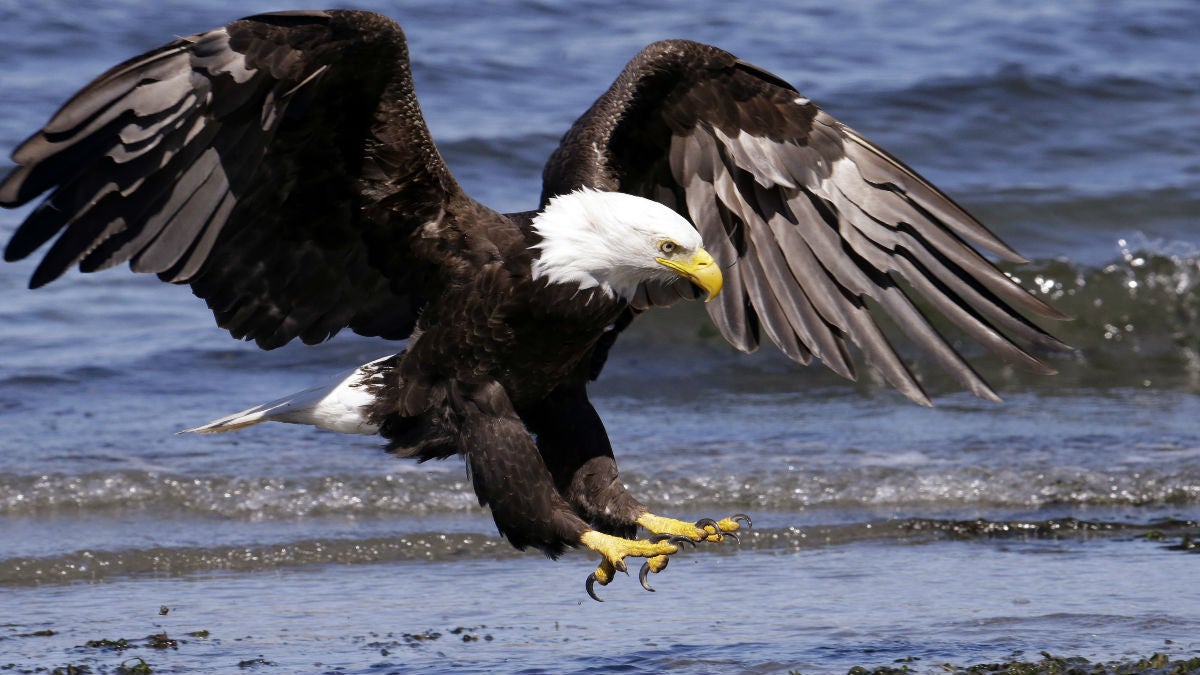N.J. bald eagles continues to thrive, survey finds
It was another good year for New Jersey’s bald eagles, a study released by the New Jersey Division of Fish and Wildlife found.

(AP Photo/Elaine Thompson)
It was another good year for New Jersey’s bald eagles, a study released by the New Jersey Division of Fish and Wildlife found.
Highlights of the 2018 NJ Bald Eagle Project Report, which provides the number of active nests and nest productivity for the raptors throughout New Jersey, includes 185 active nest sites with eggs (up from 176 in 2016) and 30 new pairs (up from 15 in 2016).
The nest sites generated 172 young, which is within the required range for population maintenance, according to the survey. That’s down from the peak of 216 young produced in 2016.
32 eagles were recovered in 2018, including five that were treated for injuries and released.
The most common cause of death was electrocution due to impact with power lines. The report says that wildlife officials work with the state’s electric providers to retrofit utility poles and mark high risk lines.
Most of the nests were located on private land in the southern portion of the state near the Delaware River and Delaware Bay.
During the 1980s, there were only a few bald eagle nests, according to the Conserve Wildlife Foundation of New Jersey. Officials have pinned the bald eagle recovery on the banning of the pesticide DDT and protective federal regulations.
“The bald eagle is a shining example of recovery in New Jersey,” according to a state Division of Fish & Wildlife report. “In 1973, when the Endangered and Nongame Species Conservation Act was passed, there was just one nesting pair, in a remote forest in Cumberland County.”
Chris Spiegel, an Ocean Grove based photojournalist and owner of Blur Revision Media Design, has documented the happenings in one Shore nest. He has captured images in 2012 and 2013.
But he’s very careful to not disturb wildlife, adamantly refusing to reveal the location of his subjects.
For more information about raptors in New Jersey, visit here.
WHYY is your source for fact-based, in-depth journalism and information. As a nonprofit organization, we rely on financial support from readers like you. Please give today.



